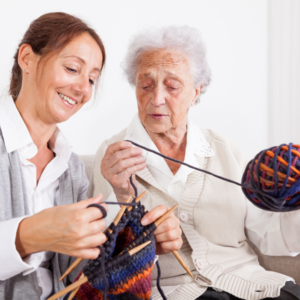As our loved ones age, many of us find ourselves stepping into the role of caregiver. Whether it’s helping them with daily activities, managing health concerns, or simply providing emotional support, caring for elderly family members can be a rewarding but challenging experience. If you are one of those family members taking on this responsibility, you are not alone. Here’s a guide to help you navigate the challenges of caregiving while maintaining your own well-being.
1. Understand the Needs of Your Loved One
Every elderly person is unique, and so are their needs. Some may require assistance with mobility, while others may need help managing medications or dealing with memory loss. It’s crucial to have an open conversation with your loved one (if possible) and medical professionals to fully understand their health condition, routines, and preferences. This will not only help you offer the best care but also ensure your loved one feels respected and understood.
2. Create a Care Plan
Once you have a clearer understanding of what your loved one needs, it’s time to put a plan in place. This plan should address their medical needs, daily routines, safety concerns, and any specific preferences they have. For example, setting up regular check-ups, arranging for therapy, or considering home safety improvements (like grab bars or a walker) may be necessary. A written plan can help keep everything organized and ensure that nothing important is overlooked.
3. Ask for Help When You Need It
Caring for an elderly family member can be overwhelming, and it’s important to remember that you don’t have to do it all by yourself. Reach out to other family members or friends to share the caregiving duties. You might also consider hiring a professional caregiver for tasks that require specialized knowledge, such as physical therapy or managing medications. In addition, support groups and online forums for family caregivers can offer valuable emotional support and practical advice.
4. Take Care of Yourself
In the midst of caregiving, it’s easy to forget about your own health and well-being. However, caring for yourself is just as important as caring for your loved one. Make time for regular exercise, healthy meals, and adequate sleep. It’s okay to take breaks, even if it’s just for a walk or a few minutes of meditation. You can’t provide the best care if you’re exhausted or stressed out. Consider hiring respite care for a few hours a week to recharge.
5. Communicate with Your Loved One
Caring for someone involves more than just physical assistance. It’s also about emotional support. Aging can be a difficult and lonely process, and your loved one may experience feelings of frustration, sadness, or anxiety. Take the time to listen to them and encourage open communication. Respect their independence and dignity by allowing them to make decisions about their care whenever possible. This will help them feel empowered and maintain a sense of control over their life.
6. Stay Organized
Keeping track of appointments, medications, and daily routines can be a daunting task. Consider using a caregiver calendar or an app designed for caregivers to help you stay organized. Keep a notebook or digital record of medical information, appointments, and any changes in your loved one’s health. Staying organized will help reduce stress and ensure that you don’t miss important tasks.
7. Know When to Seek Professional Help
There may come a time when your loved one’s needs exceed what you can provide. Don’t hesitate to reach out for professional help, whether that means in-home care, a day program, or even an assisted living facility. Seeking help doesn’t mean you’re failing—it means you are prioritizing your loved one’s well-being and ensuring they receive the care they deserve.
8. Celebrate the Small Wins
Caregiving can be emotionally and physically exhausting, and it’s easy to get discouraged. Remember to celebrate the small victories along the way. Whether it’s a good doctor’s appointment, a successful outing, or simply spending quality time together, take moments to appreciate the positive aspects of caregiving. These moments can help you stay motivated and maintain a positive outlook.
Conclusion
Taking care of elderly family members is an act of love, and while it’s not always easy, it’s incredibly rewarding. By being patient, understanding, and organized, you can provide the best care possible while also taking care of your own health and well-being. Don’t hesitate to ask for help and seek out resources—caregiving is a journey, and you don’t have to do it alone.
Remember, you’re doing an amazing job, and your efforts are making a significant difference in your loved one’s life.








